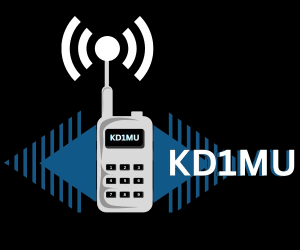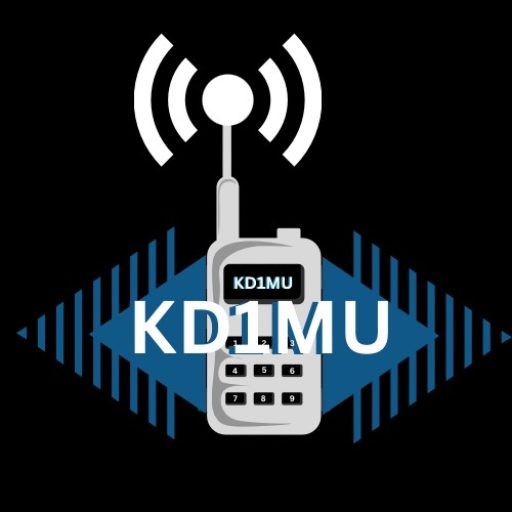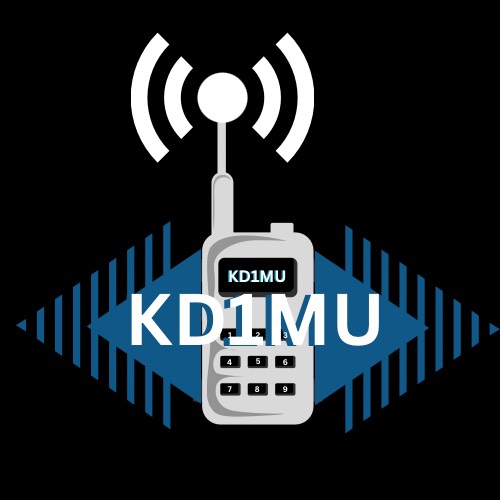- info@lebovitz.net

KD1MU RADIO


GMRS
What is GMRS?
The General Mobile Radio Service (GMRS) is highly useful for short- to medium-range two-way communications, particularly in outdoor or off-grid environments. It offers several advantages, especially for personal, family, and group use. Here are the key uses of GMRS:
-
1. Family and Group Communication
Camping and Hiking: GMRS radios are great for maintaining communication between family members or group members during outdoor activities such as camping, hiking, hunting, and off-roading. Traveling in Convoys: When traveling with multiple vehicles, such as road trips or off-road adventures, GMRS radios help keep the group in touch across miles, even in areas with no cellphone coverage. Events and Gatherings: GMRS is ideal for staying connected during large events, like family reunions or other group activities, where coordination is necessary across distances.2. Emergency Communication
Emergency Preparedness: GMRS radios can be used during emergencies when phone networks are down or overloaded. Families can establish communication plans to ensure they stay in contact during natural disasters or other crises. Neighborhood Emergency Networks: Neighbors or communities can use GMRS radios to create local emergency communication networks, particularly useful in rural or remote areas. Search and Rescue Operations: GMRS is used by many volunteers and organized groups to assist in search and rescue missions due to its range and reliability.3. Outdoor Recreation
Off-Roading and 4×4 Use: GMRS radios are popular among off-road enthusiasts, helping keep drivers in touch across hilly, rugged, or forested terrain where cellphone signals might not reach. GMRS radios are commonly used by off-road clubs and adventure groups. Boating: GMRS radios can be helpful for boaters who need communication over water where cell signals might be weak or non-existent. Hunting: Hunters can use GMRS to stay in touch with each other across large distances without relying on cell service.4. Extended Range Communication
Repeater Access: GMRS allows for the use of repeaters, which can significantly increase communication range (up to 20-50 miles, depending on the terrain and location). This makes GMRS valuable for long-range communication in situations where FRS radios wouldn’t suffice. Terrain Versatility: GMRS radios can penetrate more challenging terrains, including mountains, forests, and urban environments, more effectively than many other types of personal radios.5. Family Travel and Outdoor Safety
Road Trips: Families on long car journeys can use GMRS radios to stay in contact between vehicles or communicate when stopping at different locations along the way. Emergency Response in Remote Areas: GMRS is an excellent option for people who travel or work in remote locations, as it can provide a reliable form of communication when cell towers are not available.6. Coordination for Large Properties
Farm or Ranch Operations: GMRS radios are useful for communication across large properties like farms or ranches where workers need to stay in touch but are spread out over miles. Security Teams: GMRS can be used by security personnel at large properties, estates, or events where cell phone communication might not be feasible due to poor reception or battery limitations.7. Disaster Relief and Preparedness
Preparedness Groups: Many emergency preparedness and survivalist groups use GMRS to create networks that function during power outages, cell tower failures, or other communication breakdowns. Post-Disaster Communication: GMRS radios can be critical tools for communication in the aftermath of natural disasters, such as hurricanes, earthquakes, or wildfires, when local infrastructure is compromised. In summary, GMRS is useful for anyone who needs reliable, medium-range, two-way communication, especially in situations where cell service is limited or unavailable. It provides a convenient and legally licensed way to stay connected with family, friends, or groups across various activities and environments.
Who Can Use GMRS?
When using the General Mobile Radio Service (GMRS) in the U.S., it’s important to understand the Federal Communications Commission (FCC) regulations that govern its use. Here are the key GMRS regulations to be aware of:
- Licensing Requirement
- License Needed:Unlike the Family Radio Service (FRS), GMRS requires a license from the FCC.
- License Duration:A GMRS license is valid for 10 years.
- Who Can Use It:Once a GMRS license is obtained, it covers not only the individual who applies but also their immediate family members (spouse, children, parents, and grandparents).
- Eligibility
- Age Requirement:You must be at least 18 years old to apply for a GMRS license.
- Citizenship:Applicants must be U.S. citizens, though non-citizens can use GMRS equipment if authorized by a licensed individual.
- Frequency and Power Limits
- Channels Available:GMRS operates on specific UHF frequencies, usually shared with the FRS, but with higher power limits.
- Power Limits:
- For handheld units: Up to 5 watts.
- For base stations, mobile units, and repeaters: Up to 50 watts.
- Channel Sharing:GMRS users must share frequencies with others, so etiquette and minimal interference are important.
- Permitted Equipment
- FCC-Certified Radios:Only FCC-certified GMRS radios are allowed. You cannot use radios certified only for other services (such as FRS-only or amateur radio).
- Modifications Prohibited:Modifying a GMRS radio or using non-GMRS radios is illegal.
- Permitted Uses
- Personal Communications:GMRS is primarily intended for personal use, such as family communications during activities, travel, or emergency coordination.
- Commercial Use:Limited commercial communications are permitted but not as the primary purpose.
- Emergency and Travel:GMRS can be used in emergencies or during travel (e.g., caravanning), making it popular among off-roaders and outdoor enthusiasts.
- Prohibited Uses
- Encrypted Messages:Encryption is not allowed on GMRS. All communications must be open and accessible by other users.
- Business-Only Use:While some business use is allowed, using GMRS solely for business without a license is prohibited.
- Repeater Usage
- Repeater Operation Allowed:GMRS allows for the use of repeaters to extend the communication range.
- Repeater Access:If using a repeater, you must have permission from the owner/operator.
- Interference Rules
- Cooperation Required:Users must cooperate with each other to minimize interference. If another station is using a channel, you must either wait until it is free or coordinate your usage.
- Channel Management:GMRS users must avoid causing interference and cannot claim exclusive rights to a frequency.
- Penalties
- FCC Enforcement:Violating GMRS rules can result in fines, forfeiture of your equipment, and/or license revocation. Always follow the regulations and operate legally.
- Identification Requirements
- Call Sign Transmission:You are required to identify your GMRS station by transmitting your FCC-assigned call sign at the beginning and end of a communication, and every 15 minutes during longer transmissions.
By adhering to these GMRS regulations, you can legally operate your radio and avoid any penalties from the FCC.

Services
Get In Touch
123 Main Street
New York, NY 10001
- support@kd1mu-radio.com
- Phone +1 617-651-4221
- Instagram kd1mu.radio
50 Years of experience with Radio. We can help you find the best product to meet your needs, help you set it up, and get the most out of it.
KD1MU
RADIO
Powered by Omax John
